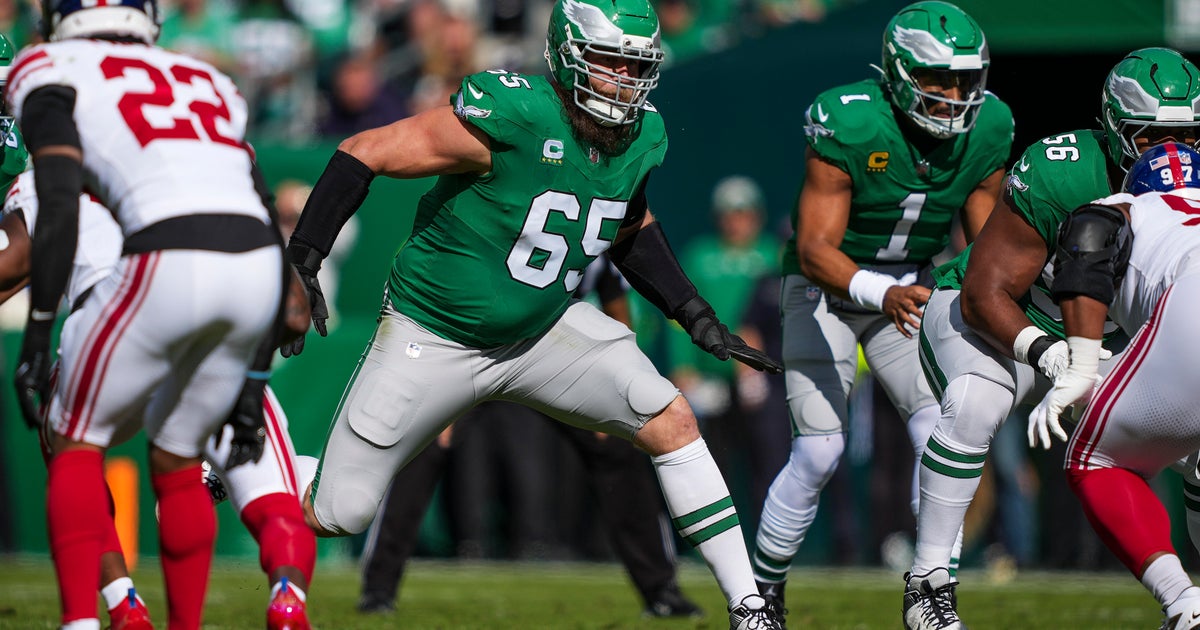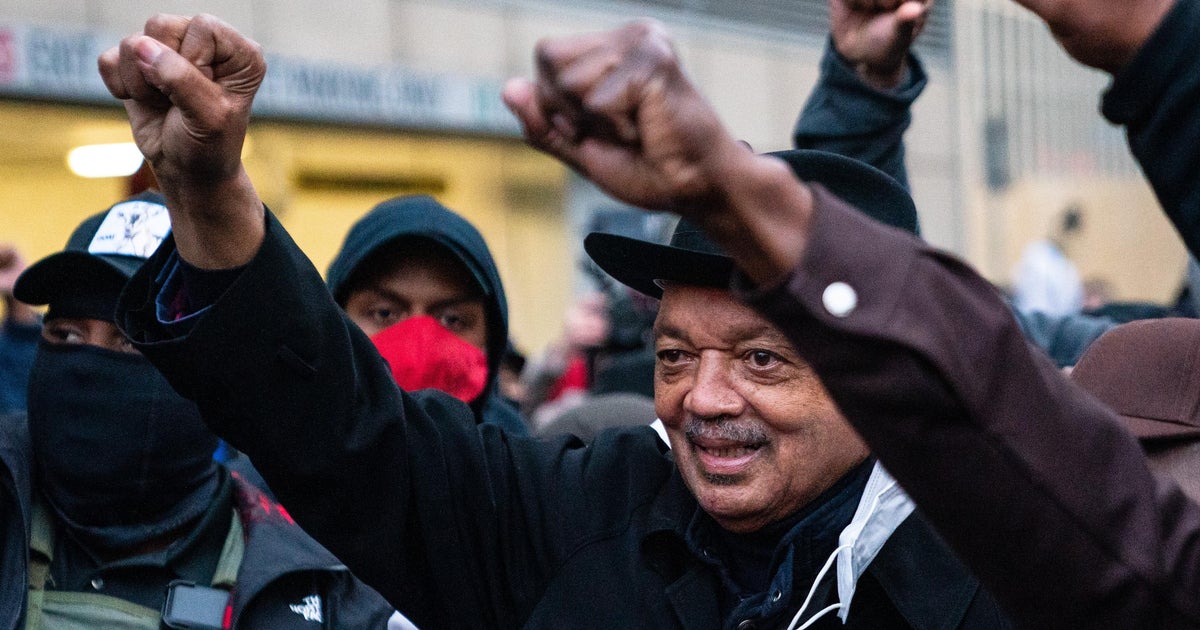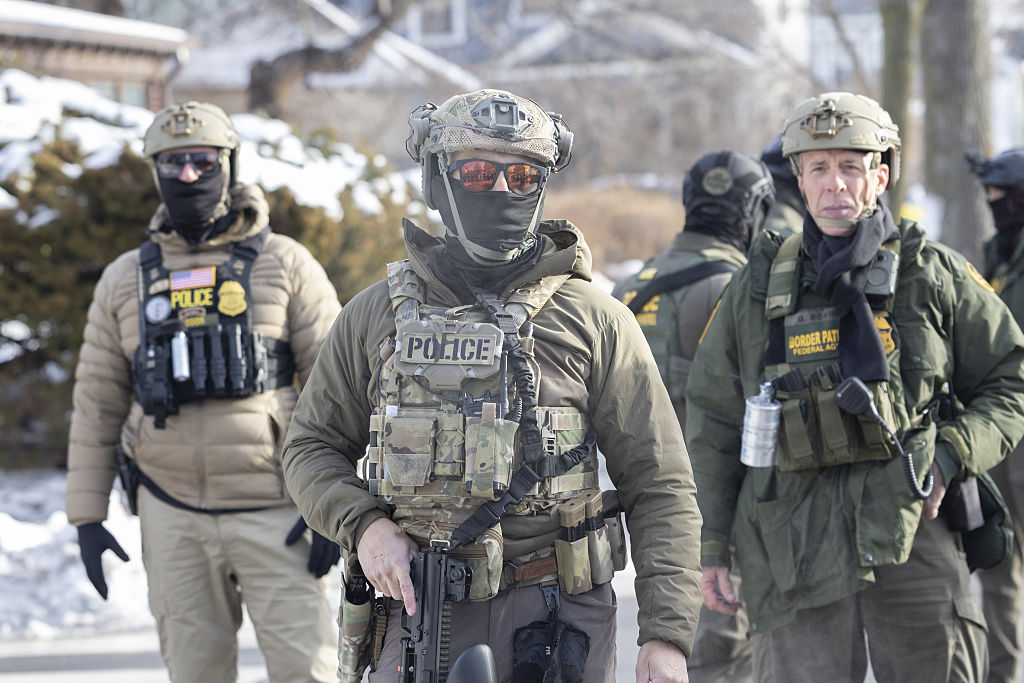"We are done dying": NAACP demands an end to institutional racism as nationwide protests continue
NAACP President Derrick Johnson says African Americans are "done dying" from the effects of institutional racism in everything from policing to health care. The civil rights group launched a hashtag campaign, #WeAreDoneDying, and has called for sweeping reforms to policing around the country after the horrific death of George Floyd in Minneapolis police custody.
"You know, this is about Mr. Floyd's case, but it's much bigger than that. It is about the state of relationships between the African American community and law enforcement in this country," Johnson told CBSN anchors Vladimir Duthiers and Anne-Marie Green.
He also stressed, "This is a national problem that will require a federal response."
Floyd's death sparked national outrage after a video showing white police officer Derek Chauvin kneeling on Floyd's neck for more than eight minutes as bystanders cried out and Floyd repeatedly said, "I can't breathe."
"For African Americans, we have known this to be a problem for many, many years. What we're seeing now is the cellphone cameras are actually capturing what people have talked about for generations," Johnson said.
He also pointed to the "aggressive nature" with which police officers often handle issues involving black Americans, as opposed to white people.
"It is not enough that you obey law officers, it's not just enough that you comply with any commands and you are not resisting arrest."
A slew of other cases that have made headlines in recent weeks also raise concerns. In Louisville, Kentucky in March, EMT Breonna Taylor was shot dead in her own home by police who charged in with a no-knock warrant seeking a drug suspect who didn't live there. Nobody has been arrested in her death. Today would have been her 27th birthday.
The killing of Ahmaud Arbery in Brunswick, Georgia was left open for three months until public anger moved the state to appoint a special prosecutor, because the local prosecutor did not bring charges against the white men involved, one of whom had previously worked in law enforcement. Johnson said this was a pattern.
And in a video that went viral the same day as George Floyd's fatal encounter with police, Amy Cooper, a white woman in New York City, called 911 and falsely claimed a black man was threatening her life when that man, Christian Cooper, asked her to leash her dog as city rules required.
But the broader problem, according to Johnson, goes beyond law enforcement.
"We are done dying from all of the structural racial institutions that impose a heightened level of burden on African Americans," he said.
Inequalities in health care, a longtime problem, were further exposed when it became clear that black Americans were being disproportionately affected by the coronavirus pandemic.
Johnson also mentioned the education system, and said he "could go on and on and on," but the question remains of how to end it.
"It's good to see that we have a diverse set of individuals willing to take on the question now," he said.
Making progress on police reform begins with federal funding, Johnson said. He called for changes to public policy that would take away the ability to "bury bad police behavior in union-negotiated contracts."
Had the officers involved in Floyd's case not been recorded, he said they would have been able to shield themselves behind "qualified immunity" — a court-imposed doctrine that Johnson claims puts "police above the law." The U.S. Supreme Court may revisit the issue in some upcoming cases.
Another reform Johnson is calling for is the "decoupling" of district attorneys and their local police departments.
"For whatever reasons there might be, there is a level of inaction by district attorneys when it's involving police behavior," he said. "If no one is policing the police, then the police become the lawbreakers, not the law keepers."
Another reform the NAACP is calling for is banning forceful restrains of suspects who are lying on the ground after being apprehended, particularly if they are not resisting arrest.
Many police departments, according to Johnson, do not expressly prohibit that.
Johnson maintains that it is the institutions, not the people within them, that he is targeting.
"We are not at war. No one is saying do away with the police officers and departments. Many of them are my friends," he said. "We are saying the nature of how policing is carried out in this country is antiquated and oppressive."
He called for police training to be more in line with crime rates today, and the NAACP is advocating for citizens' review boards to provide oversight on local police departments and boost community confidence.
"Crime has been going down for about 30 years now — I'm talking about serious violent crime. Yet the escalation of how police officers are trained and use force has stayed the same," he said. "If we continue to train officers to see citizens as the enemy of the state we will continue to get this kind of behavior."
But the most important and widespread way to enact change? Johnson said it's to keep up the energy from the current movement and channel it into the ballot box.
"This is a great moment for our nation. Let's continue the energy to November to keep making the changes necessary," he said.



